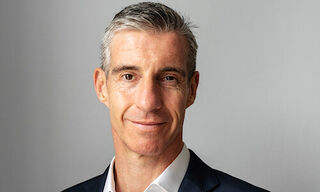UBS may have the luxury version of a robo-adviser in its portfolio. But this doesn’t stop it from having the same problem as any startup: getting it to the customer.
Customers of UBS wealth management in the U.K. have the choice of entrusting their assets to a robo-adviser – Switzerland’s largest bank launched Smartwealth at the beginning of this year. The bank wasn’t shy in heaping praise on its latest offering when it went live.
UBS Smartwealth is something akin a Rolls Royce of digital wealth managers: individualized advice in real-time with a focus on personal, financial goals according to the customer’s risk profile. Add to that a choice of equities and passive investment strategies, frequent performance checks and adjustments.
The Best of Both Worlds?
At the launch of Smartwealth, Dirk Klee, chief operating officer at UBS wealth management, said that the robo-adviser showed that digital innovation wasn’t the prerogative of startups and that Smartwealth combined the best of UBS with the best of the startup community.
Nine months later, UBS clearly is struggling with the typical problem of a startup: a lack of customers willing to bank with Smartwealth.
That at least is what comments by Juerg Zeltner (pictured below), made in an interview with «Reuters», suggest. He said that UBS was «very happy with the offering», but added: «This is a big learning ... the real question is how do you scale it to more?»

A Tough Business
Having a great website with easy access for customers and smart investment solutions at cut-price fees isn’t a guarantee for success. The platform has to achieve a certain range and size to make it sustainable.
Only a small number of companies have achieved such lasting success with the online wealth management solutions. Wealthfront and Betterment, both U.S.-based, took years and millions of dollars to establish themselves in the financial market, before they attracted the necessary level of client assets.
By contrast, Truewealth of Switzerland also started with strong ambitions but soon hit the proverbial wall: bank customers aren’t easily enticed to move their assets from private banks to robo-advisers only because the latter is cheaper.
New Type of Customer
Trust in your established banking partner remains important. The new companies therefore are more likely to attract young affluent customers who don’t yet have enormous amounts of money entrusted at a private bank.
As the world’s biggest wealth manager, UBS ought to have an advantage of trust. But the bank is targeting a new type of client in the U.K.: people with assets of £100,000 to £2 million and those ready to at least invest £15,000, the minimum amount required from Smartwealth customers.
At UBS, only the Swiss unit has experience with this type of mass-affluent business, where the company has a large retail bank. Professional wealth management in the U.K. hitherto was restricted to rich private clients ready to pay substantial fees for the service.
Other Markets May Follow Later
As such, wealth management in the U.K. is geared towards very rich customers. The bank’s reputation is an important asset in this fight over the rich pickings. The mass-affluent customer however may not be too impressed by the bank’s brand and reputation.
So far, there has not been a huge surge of new clients using the Smartwealth investment platform, according to Zeltner. And of course, UBS has to make this a success, given that it has 70 to 80 members of staff work exclusively for the digital bank.
The slow start of Smartwealth in the U.K. may delay the launch of the product in other markets. The robo-adviser first has to convince in the U.K.


























